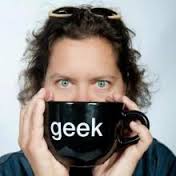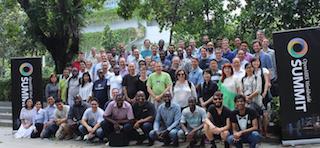 As we move from fee for service to alternative payment models/value-based purchasing we will increasingly measure our progress based on outcomes and total medical expense. HealthKit was an enabler that led Beth Israel Deaconess to create BIDMC@Home, an iPhone and iPad app that uploads internet of things (blood pressure cuff, glucometer, scale, activity, sleep data etc.) to our electronic health record. CareKit, announced by Apple this week, takes us one step further on our wellness-focused journey.
As we move from fee for service to alternative payment models/value-based purchasing we will increasingly measure our progress based on outcomes and total medical expense. HealthKit was an enabler that led Beth Israel Deaconess to create BIDMC@Home, an iPhone and iPad app that uploads internet of things (blood pressure cuff, glucometer, scale, activity, sleep data etc.) to our electronic health record. CareKit, announced by Apple this week, takes us one step further on our wellness-focused journey.
 At this year’s HIMSS conference, interoperability was again one of the hottest topics of discussion. Interoperability was even a featured showcase at the HIMSS Interoperability Showcase. Yet the lack of interoperability in HealthIT remains. "HealthIT is not unique in its interoperability woes and other industries, including the automotive industry, are still struggling with associated safety issues."
At this year’s HIMSS conference, interoperability was again one of the hottest topics of discussion. Interoperability was even a featured showcase at the HIMSS Interoperability Showcase. Yet the lack of interoperability in HealthIT remains. "HealthIT is not unique in its interoperability woes and other industries, including the automotive industry, are still struggling with associated safety issues."
 Many existing vendors recognize the need to move open standards, open data and open interfaces (APIs) but while some are moving in the right direction, they are not there yet Others drag their feet knowing their current success relies on existing proprietary solutions, customer lock and their pseudo-ownership of customer data. Getting to the tipping point at which open platforms can really take off is going to require new players challenging the status quo and a willingness from the health and care community to help them successfully engage.
Many existing vendors recognize the need to move open standards, open data and open interfaces (APIs) but while some are moving in the right direction, they are not there yet Others drag their feet knowing their current success relies on existing proprietary solutions, customer lock and their pseudo-ownership of customer data. Getting to the tipping point at which open platforms can really take off is going to require new players challenging the status quo and a willingness from the health and care community to help them successfully engage. Rats! I was all excited to write about virtual reality -- what with the long-anticipated release of the Oculus Rift -- or about how perhaps augmented reality is going to be the new reality, as some experts predict. Then Consumer Reports came out with a report that I had to write about: What You Don't Know About Your Doctor Could Hurt You. Long story short: chances are you don't know what you'd like to. Consumer Reports did a deep dive on the actions of the California medical board, obtaining their entire database of doctors on probation...
Rats! I was all excited to write about virtual reality -- what with the long-anticipated release of the Oculus Rift -- or about how perhaps augmented reality is going to be the new reality, as some experts predict. Then Consumer Reports came out with a report that I had to write about: What You Don't Know About Your Doctor Could Hurt You. Long story short: chances are you don't know what you'd like to. Consumer Reports did a deep dive on the actions of the California medical board, obtaining their entire database of doctors on probation... One of the top-rated apps in the Google Play Store right now when you search for glucose tracker is Glucosio. The app is designed to track blood glucose test results, and after installing it to test it out, I found it easy and simple to use, with not a lot of settings to deal with to get straight to using it. In just a few short months since its release in October 2015, Glucosio has received great ratings and reviews and over a thousand downloads. Glucosio was also recently listed on Black Duck's list of Open Source Rookies of the Year, which honors innovative, sophisticated projects in open source...
One of the top-rated apps in the Google Play Store right now when you search for glucose tracker is Glucosio. The app is designed to track blood glucose test results, and after installing it to test it out, I found it easy and simple to use, with not a lot of settings to deal with to get straight to using it. In just a few short months since its release in October 2015, Glucosio has received great ratings and reviews and over a thousand downloads. Glucosio was also recently listed on Black Duck's list of Open Source Rookies of the Year, which honors innovative, sophisticated projects in open source... Doing good for the world is often the nature of an open source software or hardware project. Offering code and schematics to others free of charge and with a license that allows for reuse and modification is often done to help others. Knowing this, I was still surprised to learn about an incredible project that combines robotics and prosthetics. This Instagram video of a robotic hand stopped me in my tracks. Further investigation revealed that the hand is the creation of OpenBionics...
Doing good for the world is often the nature of an open source software or hardware project. Offering code and schematics to others free of charge and with a license that allows for reuse and modification is often done to help others. Knowing this, I was still surprised to learn about an incredible project that combines robotics and prosthetics. This Instagram video of a robotic hand stopped me in my tracks. Further investigation revealed that the hand is the creation of OpenBionics... In this article, I'll look at community from a business perspective, including the effect community can have on an organization's bottom line. Although there are communities everywhere, I'll approach the topic—meaning, communities, their members, and their contributors—from a free/open source perspective. So please stick around, and maybe you'll learn ways to communicate the importance of community to your organization...
In this article, I'll look at community from a business perspective, including the effect community can have on an organization's bottom line. Although there are communities everywhere, I'll approach the topic—meaning, communities, their members, and their contributors—from a free/open source perspective. So please stick around, and maybe you'll learn ways to communicate the importance of community to your organization... ThoughtWorks first began contributing to OpenMRS in 2006 and since that time, we've had over fifty committers to OpenMRS in GitHub. Incidentally, one in every seven OpenMRS contributor in GitHub is a ThoughtWorker! Naturally, in 2013, when we had the opportunity to build Bahmni, an open source hospital information system, we choose OpenMRS as the underlying Electronic Medical Records System (EMR). Bahmni leverages the mature data model and APIs of OpenMRS, whilst providing an out-of-the-box system that can be immediately used by hospitals.
ThoughtWorks first began contributing to OpenMRS in 2006 and since that time, we've had over fifty committers to OpenMRS in GitHub. Incidentally, one in every seven OpenMRS contributor in GitHub is a ThoughtWorker! Naturally, in 2013, when we had the opportunity to build Bahmni, an open source hospital information system, we choose OpenMRS as the underlying Electronic Medical Records System (EMR). Bahmni leverages the mature data model and APIs of OpenMRS, whilst providing an out-of-the-box system that can be immediately used by hospitals.